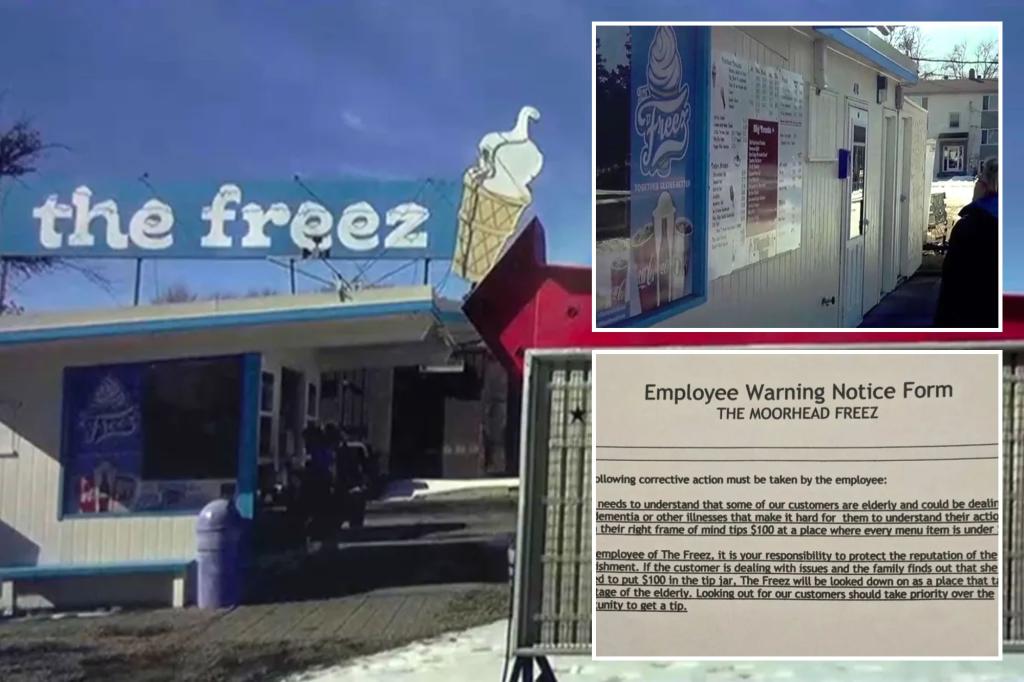A Minnesota ice cream shop worker was fired after a customer tipped $100 in the tip jar, leading to accusations of the worker taking advantage of an elderly customer with dementia. Seth and Lisa Swenson’s daughter, Emily, was a five-season employee at The Freez in Moorhead, Minn., and was allegedly terminated after the incident. The customer tried to give Emily the $100 tip, but when she declined, the patron put the money in the tip jar and drove off. At the end of her shift, the management accused Emily of taking the tip.
Soon after the tipping incident, The Freez submitted an “Employee Warning Notice Form” to Emily, citing her need to understand that some customers could have dementia or other illnesses that affect their actions. The notice stated that it was unusual for someone to tip $100 at a place where every menu item was under $12. The establishment was concerned about its public image within the community if word got out that their employee accepted such a large gratuity. Emily was tasked with protecting the shop’s reputation, and accepting a large tip could lead to perceptions that the business takes advantage of the elderly.
Despite the initial warning notice and the concerns about the establishment’s reputation, The Freez later clarified that Emily was not fired for accepting the tip. The store took to social media to defend their decision to terminate Emily and pointed out that it was a personal matter. They also criticized Emily’s parents for speaking out in support of their adult daughter. The ice cream shop emphasized their values of strong work ethic and Moorhead values and mentioned that they strive to make people happy with their ice cream.
Emily’s family publicly supported her and expressed their appreciation for the customer who provided the generous tip. The Swensons clarified that the kind lady was not responsible for what happened, and Emily does not hold her accountable for the firing. In a separate incident in February involving a Michigan cafe server, Linsey Huff was fired after splitting a $10,000 tip with her colleagues, sparking tension among the staff. The customer had requested the large tip be shared among the service staff, with each server receiving approximately $1,200, but back-of-house employees were left out.
The situation at The Freez and the Mason Jar Cafe shed light on the complexities of accepting large tips in the service industry and the potential controversies that can arise. While generous gratuities are typically appreciated by employees, issues such as fairness, policy compliance, and perceptions of exploitation can lead to conflicts within businesses. Understanding the implications of accepting large tips, especially in cases involving vulnerable customers or shared gratuities, is essential for maintaining a positive work environment and upholding ethical standards in the service industry.


